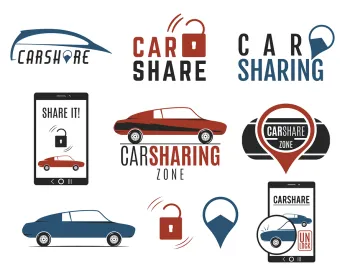While the economy overall is strong and vehicle sales are still robust, there are risks in the industry that may affect the supply chain and cause disruptions throughout the year. Chief among these are the ongoing concerns regarding tariffs on products such as steel and aluminum, along with the on-again, off-again trade disputes with China.
In addition to the upheaval in global markets, the shift away from passenger cars and toward trucks and sport utility vehicles has caused automakers to realign their product offerings and even end the production of several car models. For suppliers, who have been dependent on contracts to provide parts for these vehicles, this realignment could be problematic. In addition, higher interest rates may complicate financing for businesses that need additional capital to address these changed circumstances.
Global Trade Uncertainties
The Trump administration’s policies – which are designed, among other things, to correct perceived trade imbalances with America’s largest trading partners – are having a significant impact on the automotive industry. Commodity costs are rising dramatically due to increased tariffs and the retaliatory tariffs other countries have imposed. Increased commodity costs also negatively impact suppliers’ profitability, particularly smaller suppliers that are already grappling with pressure from higher raw materials costs that cannot be passed on to customers under fixed-price contracts.
Perhaps more alarming than the stress higher tariffs are causing for the industry is the constant uncertainty of what the future holds. For example, President Trump’s recent decision to delay new tariffs on Chinese imports is a positive development, but it is still unclear whether trade negotiations will be successful. The Trump administration’s threat to add tariffs to certain imported vehicles (particularly German cars) is also a cause for concern among automakers and suppliers. Suppliers that may be subject to new tariffs or restrictions on product sales are in a difficult position as they have little ability to anticipate these changes and react accordingly. Therefore, as the ongoing trade disputes with China and Europe, among others, continue to develop, customers will need to be aware of potential risks to their downline suppliers and anticipate future problems before they affect the supply chain.
Reduced Volumes and Changes in Consumer Taste
In the past few years, the demand for passenger cars in the U.S. has decreased. While the demand for SUVs and light truck products has increased, this is unlikely to offset the reduced car demand. Manufacturers are already responding by changing their product lines and eliminating car models altogether. Late last year, GM announced that it would stop producing several car models, idling five plants in North America and implementing layoffs of more than 10 percent of its workforce. Earlier in the year, Ford announced that it would no longer produce any passenger cars, except for the Mustang.
According to Laura Marcero, the industrial practice leader at Huron Consulting Group, suppliers are likely to see softening volumes in the near-term due to these production changes. These shift in demand will affect suppliers that focus on producing products for passenger cars, and also those that may have already been experiencing some financial difficulty. This is likely to exacerbate the effect of increasing commodity costs and trade woes facing suppliers and the industry as a whole.
Increasing Interest Rates
The Federal Reserve increased interest rates several times in 2018. As interest rates go up, borrowing becomes more expensive, both for businesses that rely on commercial credit, and for consumers, including those looking to finance new vehicle purchases. Furthermore, while credit has been relatively easy to obtain in the past few years, many businesses are carrying significant debt loads and may have trouble financing those obligations in the future, causing them to falter.
Identifying and Protecting Against Troubled Suppliers
The market conditions above are likely to cause some suppliers to have difficulty fulfilling their contracts, or to seek price increases from their customers, including other, higher-tier suppliers. In addition, the shift away from passenger cars may cause individual suppliers who are either dependent on those products or who are operating on thin margins to falter. A troubled supplier can cause significant harm to the upstream suppliers and ultimately customers. Customers should routinely evaluate the companies in their supply chain for warning signs of distress.
Here are some of the top warning signs for troubled suppliers, along with potential actions to reduce the disruption that may be caused by a troubled supplier:
A. Warning Signs of Supplier Distress
Key warning signs to look for include:
- Supplier requests for price increases, accelerated payment terms, or customer financing support, or use of factoring
- Late deliveries or changes in product quality
- Requests for technical support
- Failure to update IT systems or to appropriately use existing technology in the industry
- Failure to effectuate cost reductions
- Deteriorating accounts receivable and accounts payable
- Employment of consultants and financial advisors
- Deteriorating market position
- Restatement or delays in issuing audited financial statements
- Changes in key management positions
- Renegotiated debt covenants, incurrence of new debt, fully drawn lines of credit and impending maturity dates
B. Action Plans for Customers of Troubled Suppliers
Where these signs exist, the exercise of common law and statutory remedies may allow a customer of a troubled supplier to achieve proactive changes to standard terms and conditions of new contracts (or negotiated changes to existing contracts). By using these tactics, customers can prioritize, understand and address troubled supplier situations with greater advance awareness, leverage and options.
Customers also should routinely analyze their contracts to maximize their position in dealing with potentially troubled suppliers. A customer’s existing contracts with a given supplier have a substantial effect on the customer’s rights and remedies, both pre-bankruptcy and post-bankruptcy. For example, the terms of the contracts govern critical issues such as:
- Each party’s ability to terminate the contracts
- The supplier’s ability to stop shipment and impose “hostage” demands
- A customer’s ability to resource production to another, healthier supplier
- A customer’s ability to utilize certain contract remedies, including to demand adequate assurance of future performance pursuant to section 2-609 of the UCC or consider the contracts repudiated by the supplier
- Whether a contract is considered an “executory” contract in bankruptcy, whether it is integrated with other contracts, and the corresponding impact on the duty to perform in bankruptcy
- The troubled supplier’s ability to assume and assign, or reject, the contract in bankruptcy
- A customer’s ability to recover tooling
- Lien rights
- Setoff rights
Through the imposition and application of statutory and common law contract rights, manufacturers can avoid troubled companies’ use of their own ordinarily broad bankruptcy rights to reject contracts for continued supply of goods. Where signs of financial distress are apparent, or a manufacturer otherwise has reasonable grounds to believe that a supplier’s future performance is in doubt, a manufacturer may be able to demand adequate assurance of future performance from the supplier under section 2-609 of the UCC.
If such assurance is not provided, a manufacturer may be able to consider the contract repudiated, which allows them to either resource or suspend shipment, or to negotiate or impose more protective or otherwise better terms in order to “shore up” contract rights before a bankruptcy filing. These strategies can drastically alter the parties’ rights after a bankruptcy filing and provide greater leverage in negotiations and better outcomes.
To preserve supply, manufacturers also may participate in a pre-bankruptcy workout – which is intended to keep a troubled supplier on the verge of bankruptcy from ceasing production of necessary parts – by restructuring the supplier’s debt and capital structure. These transactions often include tripartite agreements among the troubled supplier, its significant customers, and its secured lenders in order to solidify each party’s commitments to keep the supplier operating during the workout (or bankruptcy).
These agreements commonly consist of access and accommodation agreements, as well as subordinated participation agreements. Through an accommodation agreement, the customers may provide (often as a group) accommodations that solidify the lenders’ collateral base through protections on inventory and receivables, commitments to continue sourcing of existing parts to the troubled supplier and limitations on setoffs, while the lender agrees to provide working capital financing and not to foreclose.
Furthermore, customer accommodations may include financing support, in which case the customer should obtain a participation agreement to obtain collateral for any financing it provides. An access agreement permits the customer, under certain circumstances threatening production and only as a last resort, to access the supplier’s plant to produce parts using the supplier’s own equipment, and employees, pending transfer of the contract or facility to a healthier supplier.
Faced with unknown foreign trade risks, increasing commodity costs and interest rates, and the realignment of vehicle lines to account for shifting consumer demand, all suppliers and customers need to be aware of any potential disruption in the supply chain. By actively monitoring vendors and taking the proactive steps outlined above, automotive suppliers can protect the supply of critical parts and continue to fulfill their contracts with their own customers.






 />i
/>i
